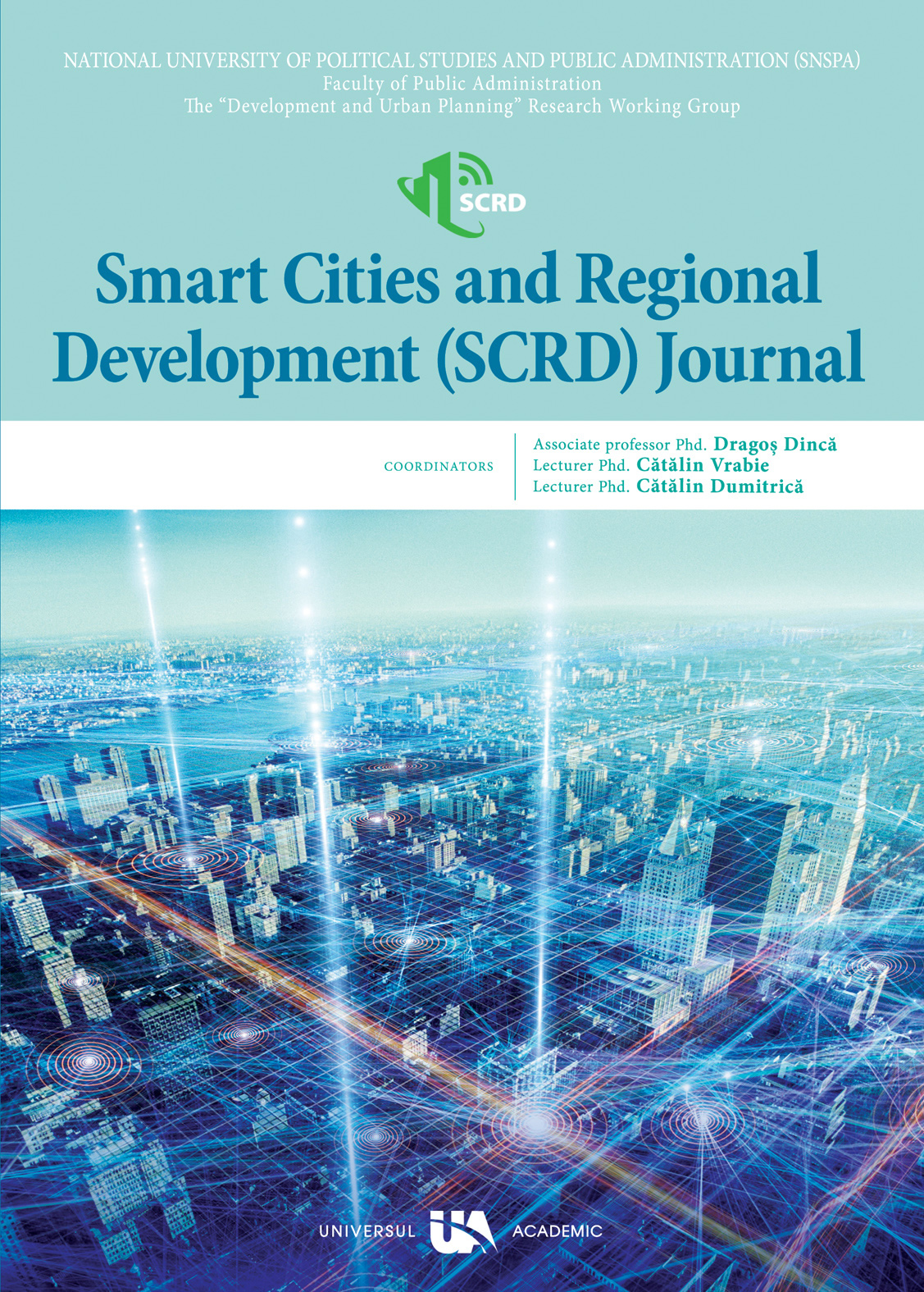Smart and connected cities in Pennsylvania: a multi-case study
Smart and connected cities in Pennsylvania: a multi-case
Author(s): Jane Beckett-CamarataSubject(s): Politics / Political Sciences, Social Sciences, Economy, Education, National Economy, Business Economy / Management, Human Geography, Regional Geography, Environmental Geography, Political Theory, Public Administration, Political economy, Methodology and research technology, Comparative politics, Human Resources in Economy, ICT Information and Communications Technologies, Socio-Economic Research, Geopolitics, Transport / Logistics
Published by: Editura Universul Academic (SC GOOD LUCK SRL)
Keywords: Harrisburg and Pittsburgh; Smart Cities;
Summary/Abstract: The objective of this study is to describe two Pennsylvania cities' unique approaches to smart and connected technology design and implementation around mobility, public safety, and sustainability. Harrisburg and Pittsburgh are emerging leaders implementing their unique smart and connected approach. These two cities are undergoing a physical, technological, and demographic transformation, which impacts social and economic issues. As a result, many distinct aspects and elements of these cities play an increasingly important role in defining the quality of life of the diverse citizenry.Cities depend on newer and emerging technologies, such as smart streetlights, autonomous vehicles, electric vehicles, shared mobility, and the Internet of Things(IoT) connected devices to improve health, safety, general welfare, and quality of life for citizens. Moreover, in smart cities, citizens' activities are not limited to their homes. Thus, smart spaces need to connect the smart city to the smart home seamlessly into a smart home concept [1]. The smart and connected cities concept is defined and visualized differently by each city depending on the context, needs and funding. As a result, each city initiates intelligent technology strategies, tools, and partnerships in its approach to developing and implementing the parameters that frame a just, equitable, and inclusive smart city. This multi-case study describes each city’s smart city and connected goals, successes and challenges to answer the research question: How has Pittsburgh and Harrisburg defined and implemented the concept of Smart City to better manage its emergent needs as a result of changing demographics?
Journal: ORAȘE INTELIGENTE ȘI DEZVOLTARE REGIONALĂ
- Issue Year: VI/2022
- Issue No: 01
- Page Range: 67-78
- Page Count: 12
- Language: English

